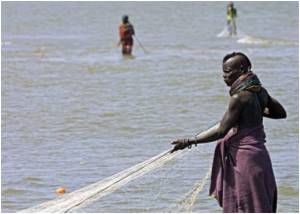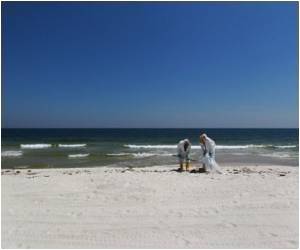The oil spill off the gulf in the US has harmed thousands of people, robbing them of livelihood and also causing great harm to the environment.

"God is trying to free you up this morning," Voisin says to a chorus of people crying "Jesus!" at the Vision Christian Center in Bourg, Louisiana.
"He hasn't promised you a rose garden," he reminds them. "If you're not tough enough to be tested you're not going anywhere."
Now 83 days into the worst environmental disaster in US history, people here are still trying to come to terms with fears that their lives will never be the same.
Oil is eating away at the fragile coastal wetlands which protect the homes built among the bayous from devastating storm surges and serve as breeding grounds for shrimp, crab and other seafood.
Most of the nearby fishing grounds have been closed for months now, and experts warn the toxic mix of oil and chemical dispersants being poured into the Gulf of Mexico could have brutal effects on the fisheries.
Advertisement
Local officials are also reporting more problems with domestic violence and drug and alcohol abuse as people start to crack under the strain of a disaster with no end in sight.
Advertisement
"We're praying that they can stop the oil and that the (fishing) industry comes back real quick, says Angela Portier, whose husband is a shrimper.
The Portiers have managed to lease their two boats to BP under the Vessels of Opportunity program and are pulling in more money right now cleaning the oil than they normally do fishing.
But they are not spending much of it because they do not know how long it will last, or when they will be able to trawl for shrimp again.
"We don't know what the future's going to hold because in Alaska (after the Exxon Valdez spill in 1989) it was 20 years before they caught shrimp again," she tells AFP after prayer services wrap up.
"We're going to pay off everything just in case this is the end and we have to find another way of living."
Portier is not sure what that will be. Both she and her husband come from families who have made their living fishing on the Gulf for generations, and they love living on the coast.
She takes a breath and insists that whatever the future brings, her family will be okay.
"We are trusting in God," she says with a smile.
Brandy Authement is also placing her faith in God as she prays for the cap to work. Her husband works in the oil industry and so far their family has not taken an economic hit from the spill.
But they live very close to the coast and she worries that their yard could get covered in oil if a big storm surge rolls through.
"If it floods again and it brings that oil we can't come home," she says.
She says she loves living in the bayou -- despite the snakes and alligators and the storms -- and does not want to live anywhere else.
"We're so used to having our shrimp and our crab and going out on our boat," Authement says.
"My heart just breaks for people directly affected... I'm praying for families to stay together and I'm praying for the people working on this to get it stopped."
Voisin has faith that his congregation and his community will be able to pull through this.
"The people down here are very resilient," he tells AFP. "They're used to hurricanes and their houses being destroyed."
He is also praying for the oil to be capped before hurricane season really gets underway and for the rains to keep falling up north so the Mississippi River stays strong enough to keep pushing the oil back out to sea.
Source-AFP









